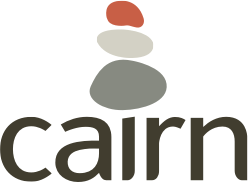What do you mean I can’t task a student do laps around the track when he/she misbehaves?
I can’t hold my annual cookie dough fundraiser for our football and band uniforms?
What do you mean I can’t take away recess when a student hasn’t completed their work?
What are you able to do these days?
My work is primarily in school health. Over the years, Centers for Disease Control and Prevention’s Coordinated School Health (CSH) Model has been the evidence-based practice for doing school health work. But what does CSH even mean? Many people describe it as multiple components working collaboratively rather than in silos. So, what’s taught in the health classroom is consistent with school policies and similar messages coming from the school nurse, physical education teacher, school counselor, staff health promotion efforts and food service. Bottom line, it’s about sending consistent, healthy messages to students and staff.
Many years ago while teaching 7th grade health, I had students point out that I was wearing one Adidas sock and one Nike sock. I was cross-branding! Oh! The mortification. I could honestly careless, but my students were mortified for me. If 13 year old students pick up on the inconsistency of what socks their teacher is wearing, they surely pick up on the mixed messages they receive everyday from teachers, school staff and the larger community.
The recommendation is for youth to be physically active 60 minutes a day, but physical education continues to be cut and our PE teachers have either 1) no dollars to get current, evidence-based professional development trainings/materials or 2) are restricted by district policy that inhibit them to travel on school days to a professional development conference or training event. Students pick up on this.
Another student may have a human growth and development lesson in health education and wants to talk to the school nurse about getting some deodorant and the school nurse is only in school on Fridays, since they are splitting their time between 3 schools.
Another student sees 4 of their 6 teachers drinking soda pop while teaching throughout the day and another lighting a cigarette in her car in the school parking lot on their prep period.
Schools have come a long way in some areas, like tobacco. Remember when the staff room door would open and smoke would bellow out? That doesn’t happen anymore. But we still have states that don’t even have tobacco-free K-12 campuses.
The other night I attended a district wellness committee meeting that had teams from schools complete the WellSAT, a tool usually used at the district level to assess your District Wellness Policy. The school teams were asked to complete it so they could see what might be added to strengthen their own local wellness policy. They were then asked to complete the Alliance for a Healthier Generation’s School Health Index. In the middle of this great working session, the superintendent popped in to show her support. She brought in a basket with letters that spelled “Sweet Tooth” on it, filled with candy. I didn’t say anything. Most of the members of the committee grabbed into the basket to grab a piece or two of candy. One person eventually said, “Let’s eat candy while working on this wellness policy stuff!”. Everyone laughed. The superintendent realized the irony and said something to the effect of, “Oh yah, that’s kind of funny. At least their small pieces of candy.”
Now, I wouldn’t dare say anything, but that’s a perfect example of inconsistent messages. There is a group of 15 educators working after school on wellness for their schools and district and the leader of that district brings them candy prior to dinnertime. What about working with food service and bringing fruit next time? Or peanut butter and crackers? Something that fuels your staffs’ brains?
This happens everywhere. Many education leaders still don’t get it. They don’t understand that school health and wellness means sending consistent messages about the whole child and the whole adult so all students and staff are in environments that best promote health and therefore learning!
So, yes, let’s get rid of the cookie dough fundraisers and the physical activity as punishment. It takes BOLD leaders. Are you one?

Leave a Reply